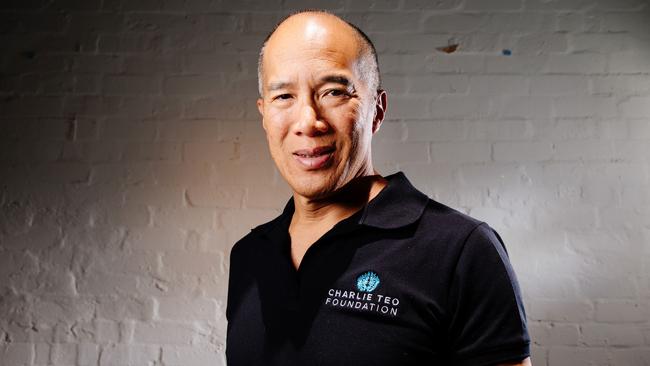Celebrity brain surgeon faces threat of disciplinary action
Charlie Teo’s dramatic claim he may be forced out of medicine comes as he faces several complaints and possible disciplinary action.

Brain surgeon Charlie Teo’s dramatic claim he may be forced out of medicine comes as he faces several complaints and possible disciplinary action in NSW.
Dr Teo has become the focus of a debate over out-of-pocket expenses after another doctor raised concern patients were fundraising tens of thousands of dollars to afford his operations.
The federal government plans to give consumers more data on likely out-of-pocket costs and will run an education campaign saying there is no link between high fees and high quality.
Dr Teo last weekend spoke to the Health Professionals Australia Reform Association, a group established to fight excessive regulation, about the scrutiny he had come under.
He likened his situation to other scandals that had driven doctors out of medicine, out of Australia, or to suicide.
Dr Teo hit back at urological surgeon Henry Woo, who first tweeted about patients fundraising for his operations, and the Australian Medical Association and Royal Australasian College of Surgeons who supported him.
But Dr Teo also revealed the NSW Health Care Complaints Commission had threatened disciplinary action against him for refusing to accept other neurosurgeons’ clinical decision-making and taking over their patients.
Dr Teo read from a letter where the HCCC purportedly urged him to “be extremely mindful about the appropriateness of making comments which might undermine confidence in colleagues’ treatment decisions relating to patients”.
“One rule for me, same rule for everyone,” Dr Teo said, referring to Dr Woo and other critics he said should face similar threats of disciplinary action.
A spokesman for the HCCC yesterday confirmed several current complaints against Dr Teo.
“The commission has a number of current complaints on these matters and, as these are in the process of determining appropriate action, it is unable to provide further comment at this time,” the spokesman said.
The Neurosurgical Society of Australasia has sought to reassure patients that, for many tumours, there is no evidence surgery provides better quality of life or longer life expectancy than other low-risk interventions.
Dr Teo has published several papers on the use of certain surgical procedures, including keyhole techniques, but has not released data on his outcomes.
He told the association 90 per cent of his work was “re-do surgery”, removing tumours other surgeons could not or did not remove, or which had recurred.
“I have never seen a patient come to me with the same incisions I make so I think it is a pretty fair claim that the majority of neurosurgeons in Australia are not practising keyhole techniques,” Dr Teo said.
Addressing the association, Dr Teo spoke of audits that had determined that poor patient outcomes were not his fault but of doctors who accused him of wrongdoing.
In other cases, complaints targeting him related to the system not providing follow-up care.


